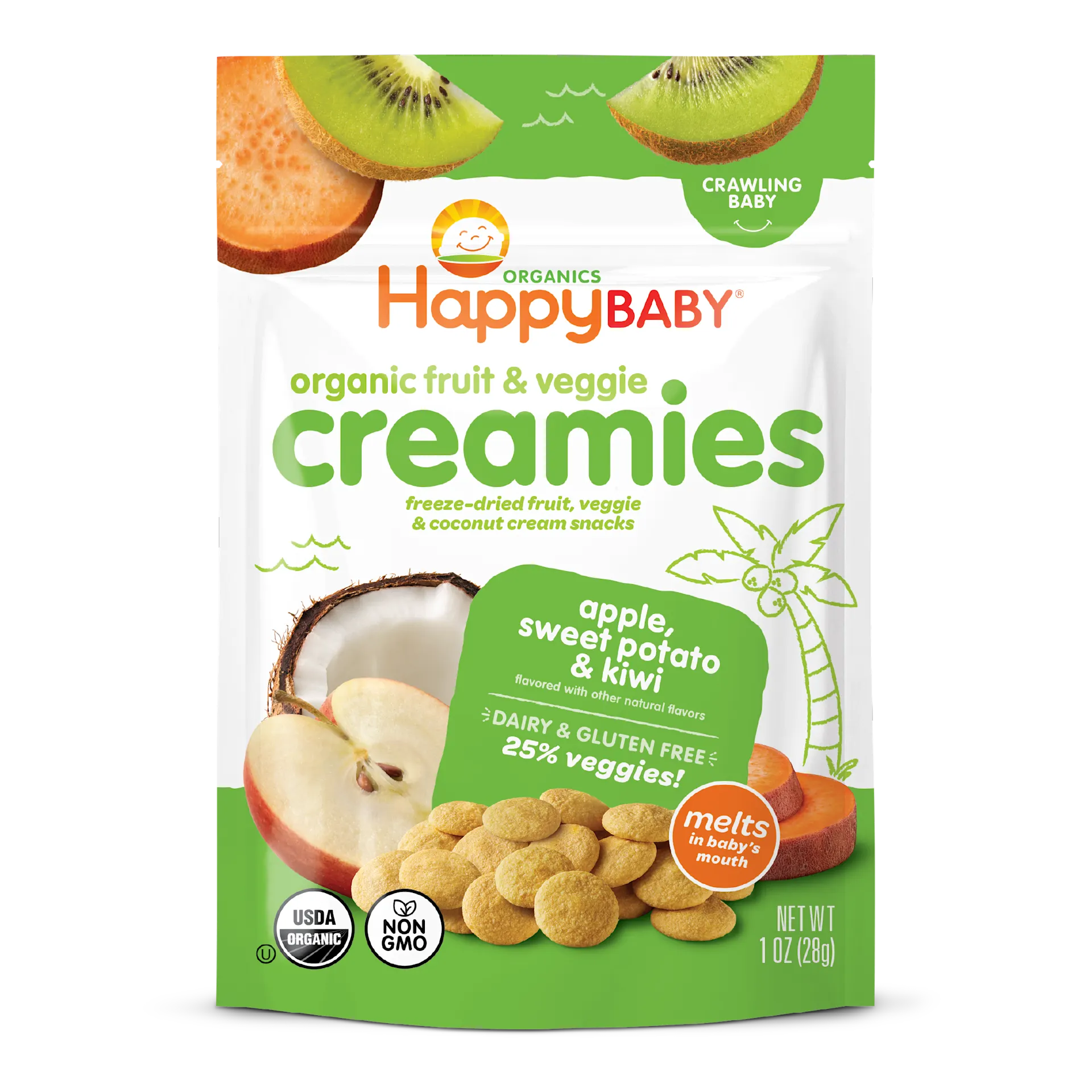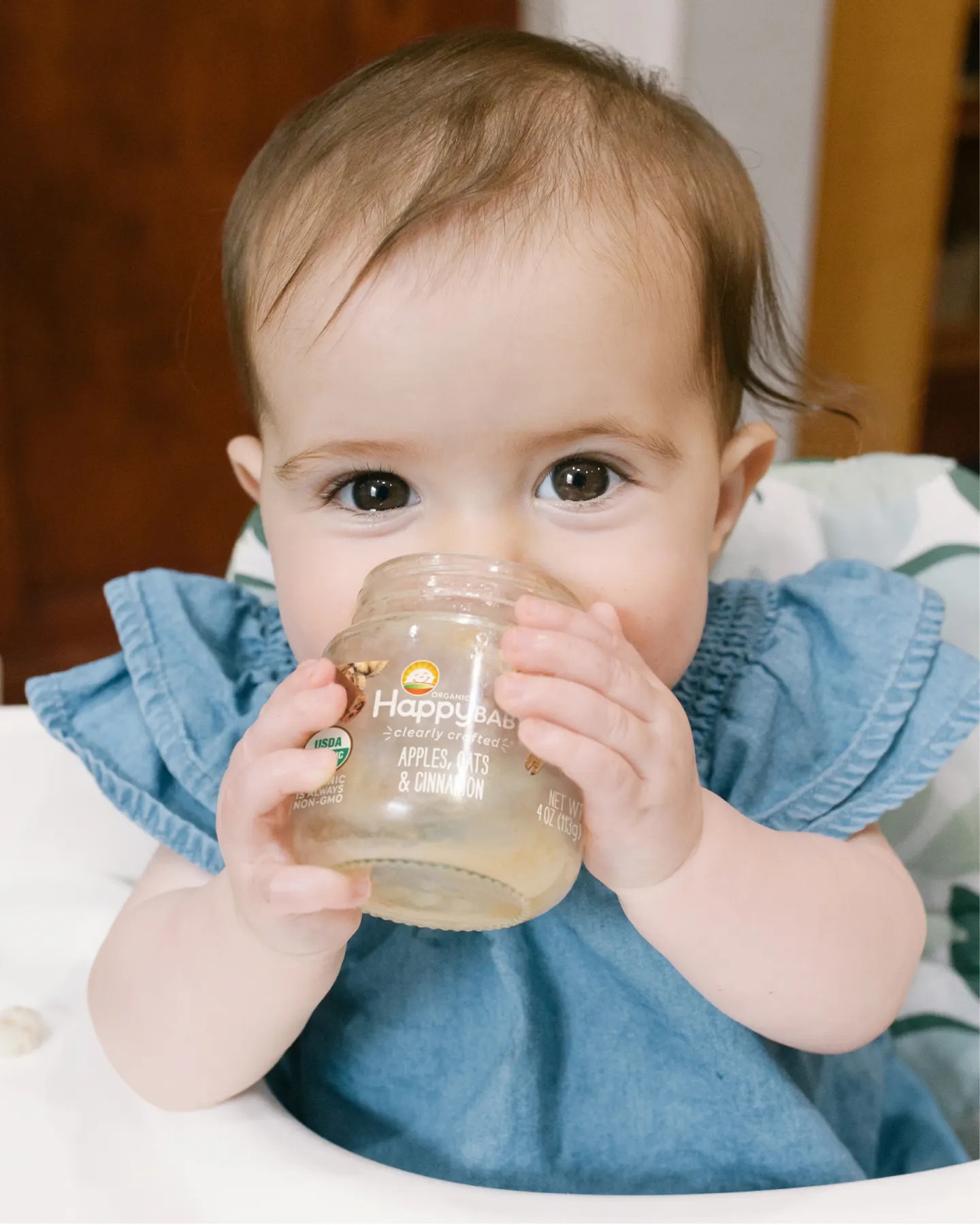Our team is dedicated to finding and telling you more about the web’s best products. If you purchase through our links, we may receive a commission. Our editorial team is independent and only endorses products we believe in.
Parenthood comes with its fair share of overwhelm, stress, and the exhausting mental load of doing it all. Wouldn’t it be nice to have a few cheat sheets along the way? Expert-approved tips and parent-vetted advice that make each transition and milestone feel a little smoother—and maybe even enjoyable? I get it, so that’s why I’m sharing the 5 things I *wish* I knew before my baby turned one—before toddlerhood hit like a ton of Magna-Tiles.
We like
We don't like
We like
We don't like
Happy Baby️ Organics
Strawberry, Butternut Squash & Banana Fruit & Veggie Creamies
We like
We don't like
1. Toddlers Grow at a Slower Rate
Don’t get me wrong—kids are still growing after their first birthday, but it’s at a much slower pace compared to that rapid growth in their first year. Because their growth slows down, so does their appetite. It’s completely normal for kids to eat less than what they used to, and for their hunger levels to fluctuate from one meal (or day) to the next.
Some days they might eat everything in sight (plus several cartons of berries, cha-ching!), and other days you’ll wonder how they’re surviving on three bites and a sip of milk. Bottom line—don’t stress. This behavior is totally normal.
2. Toddlers Need Snacks to Fuel Their Day
By the time kids turn one, the goal is for them to be eating three meals and one or two snacks each day. Even though their appetite can fluctuate, they still need consistent calories and nutrients to support their growth and development.
If your toddler struggles with eating meals, snacks are a great way to fill in any nutritional gaps. Treat snacks like mini meals, such as yogurt with fruit or a banana with peanut butter, or something simple and on-the-go, like Happy Baby Organic Fruit and Veggie Creamies. These melt-in-your-mouth freeze-dried snacks are made from real fruits, veggies, and coconut—perfect for little hands and busy days.
3. Toddlers Love Getting Picky About Food
Yep, it’s true—picky eating typically begins around a child's first birthday. Keep in mind that it’s totally normal and part of their development. One reason is that they’re gaining more independence and want more control over what they eat. Another reason is something called neophobia—a fear or hesitation around new things, including foods. So even foods they used to obsess over might suddenly end up in the “no thank you” pile if they haven’t seen them in a while. Knowing this behavior change ahead of time (and that it's just a phase!) can save you a lot of stress (and chaos! and tantrums!) during meals.
4. Kids Are Excellent at Regulating Their Appetite
Kids are born with an incredible ability to listen to their bodies—specifically their hunger and fullness cues. They eat when they’re hungry and stop when they’re full. It’s something that often surprises parents, but it's super helpful to understand early on.
When your toddler sits down to eat, their body knows how much it needs. If they only take a couple of bites, that might genuinely be enough food for them at that meal. On the flip side, if they’re asking for seconds (or thirds!), it could be a sign they’re going through a growth spurt.
Of course, distractions and mood can play a role, but in general, if we respect their hunger and fullness cues and avoid pressuring them to “just take one more bite,” we help them maintain that natural ability to self-regulate. Trusting them builds a healthy foundation for their relationship with food.
5. Parent in the Way that Works Best for You
There’s so much parenting advice out there. One day, an expert swears by a specific way to handle tantrums. Next, someone’s praising the benefits of gentle parenting—while another is making a case for the exact opposite. While there’s value in all of it, and you can absolutely learn from books, podcasts, and other parents, the truth is: only you know what works best for your family.
Parenting is not one-size-fits-all. What works beautifully for your neighbor, cousin, or best friend might not work for you—and that’s okay. Knowing that gives you the freedom to trust your instincts, tune into your own child’s needs, and find peace in your own version of parenting.
Frequently Asked Questions
Why does my toddler eat less after turning one?
It’s totally normal! Growth slows down after the first year, and so does appetite. Some days they’ll eat everything in sight; other days, barely a bite. Trust that their hunger cues are reliable and fluctuate with their needs.
How many snacks should my toddler have per day?
By age one, most toddlers do well with three meals and one to two snacks per day. Choose nutrient-dense options like yogurt, nut butter with fruit, or toddler-friendly snacks like Happy Baby Organic Fruit and Veggie Creamies to help fill in nutritional gaps.
Is picky eating normal in toddlers?
Yes, picky eating often starts around the first birthday. It's developmentally appropriate as toddlers gain independence and experience food neophobia (a fear of new foods). Keep offering a variety of foods without pressure and know that this phase will pass.
Should I make my toddler eat even if they don’t want to?
Pressuring toddlers to eat can backfire. Most kids are naturally good at regulating their appetite. Trust them to eat what they need and focus on providing balanced, consistent meals and snacks instead.
Why You Should Trust Us
This article was written by Dahlia Rimmon, MS, RDN, a registered dietitian and mom of three with years of real-life and clinical experience supporting children’s nutrition and parent wellbeing.






















